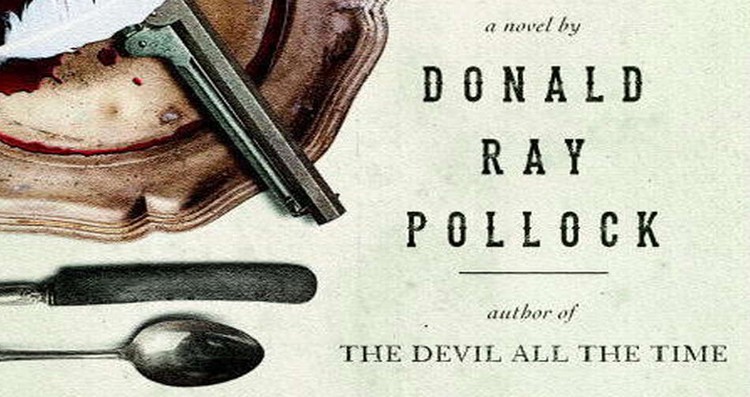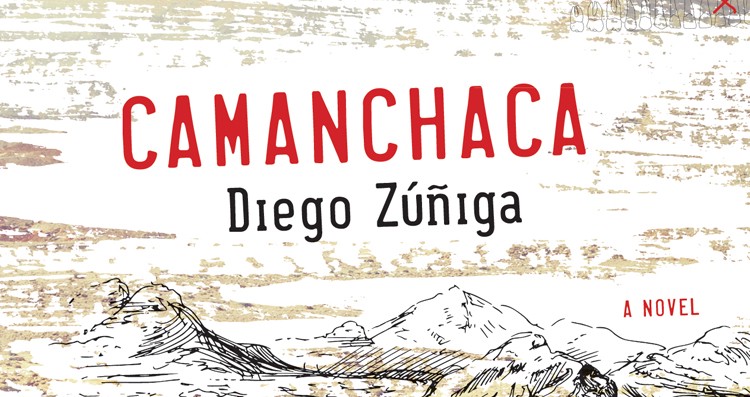interviews
The Heavenly Table of the Ghostless American Gothic
Donald Ray Pollock’s latest is a brutal tale full of violence, lust, and broken lives

Talk of the great American novel is an anachronistic waste of time nowadays, but for those insisting on perpetuating that discussion, Donald Ray Pollock’s The Heavenly Table should be a top contender. A brutal tale full of violence, lust, and broken lives, The Heavenly Table belongs to the darkest strain of ghostless American Gothic literature but has been filtered through the nonchalant callousness and deadpan humor of the best Westerns in a way that makes the narrative share DNA with authors as diverse as Nathaniel Hawthorne and Joe Lansdale. Ambitious and sprawling, this novel proves that Pollock is among the best novelists working today.
“Pollock is among the best novelists working today.”
The Heavenly Table takes place in 1917 and mainly revolves around the three Jewett brothers. After the death of their father due to a parasitic worm acquired by eating the flesh of a diseased hog, the three brothers decide to leave their miserable life of poverty and subordination behind and go on a crime spree with plans of robbing a bank and disappearing into Canada with the bounty. However, more than criminals, the Jewett brothers are country boys whose life experiences are mostly limited to backbreaking work done for almost nothing and listening to their father speak of the afterlife. Cane, the eldest, is their intellectual leader and the only literate brother. The middle brother, Cob, is a childish ignoramus who spends most of his time thinking about food. Lastly, Chimney, the youngest, is impulsive, cruel, and lacks Cane’s moral compass. The trio set out with a plan, and what happens to them as they try to accomplish their goal makes from a very entertaining novel that occupies the interstitial space between a ruthless Western with a healthy dose of scatological humor and the kind of literary fiction that delves into the lives of the broken, poor, and deracinated.
While the Jewett brothers are the main characters, The Heavenly Table also follows the narratives of Ellsworth Fiddler, a farmer from southern Ohio who lost his life savings to a scam artist who offered him some cheap cattle; a young classics scholar who struggles with his homosexuality at an Army camp in Meade, Ohio; a pimp running his business and the women who work for him; a hard-drinking African-American womanizing drifter trying to get back home and back on his feet; and a serial-killing bartender, among others.
“The Heavenly Table is a massive narrative in terms of scope, depth, number of characters, descriptions, and back stories.”
The multiple narratives eventually merge, or at least momentarily cross paths, but not before Pollock has given each one enough space that, if published separately, they could be considered novellas. This is one of the novel’s strengths and also its only major flaw. Pollock does too much here, following side narratives and giving every single character a rich back story even when they don’t deserve the time and attention.
Despite the length and plethora of storylines, The Heavenly Table is a quick read. Crackling dialogue and nonstop action propel the narrative forward and the relatively short, alternating chapters manage to sustain the reader’s interest. Another element that makes a statement about Pollock’s talent is the variety and richness of his characters. The Jewett brothers carry most of the novel on their shoulders, and their distinctive personalities and harsh past makes them likeable despite their decisions. Furthermore, their idea of robbing a bank and moving to Canada is the best incarnation of the Quixotic quest in contemporary dark fiction. These three individuals change the course of their lives because of something one of them repeatedly read out loud, and there’s an innate and unreasonable beauty in that:
“Inspired, at least in part, by The Life and Times of Bloody Bill, Chimney and Cob started dressing in cowboy garb, ten-gallon hats and dungarees and hand-tooled pointy-toed boots, while Cane, with the black frock coat and new white shirt, his hair greased back with pomade, took on the same look of shady refinement favored by riverboat gamblers and dissipated men of the cloth.”
The brothers also allow Pollock to explore media in the early 1900s. What the Jewett brothers do and what they get blamed for coalesce into a perennially expanding legend. Pollock uses this legend to show how media works and how narratives develop organically.
“Thus, on the same day that a Socialist weekly in Boston ran an editorial stating that the brothers were just a humble, illiterate sharecroppers who had killed their tyrannical overseer after he refused to allow them time off to bury their dead father, a staunchly right-wing daily out of New York City compare the outlaws to a band of ungodly savages who are possibly even worse than the Huns, going so far as to claim that they had robbed and left for dead a half-dozen good Christians along the highway in Arkansas who were on their way to a revival.”

Ultimately, the greatest accomplishment of The Heavenly Table is the way it mixes tragedy and violence with tenderness and humor. Pollock writes knowing that action, laughter, and brutality will keep the story flowing, but he also demonstrates he is one of the keenest observers of the human condition. This is a novel that could be called a noir in the sense that it deals with bad things happening to both good and bad people, but it is also a very smart narrative about the passage of time, about the “years passing by one after the other, the struggle to make ends meet, the burden of a passel of brats to feed and clothe, the inevitable decline.” That Pollock can dig into the deepest darkness of that reality and offer it to readers in a way that is pleasurable to read is a proof that he is one of our most talented storytellers.









